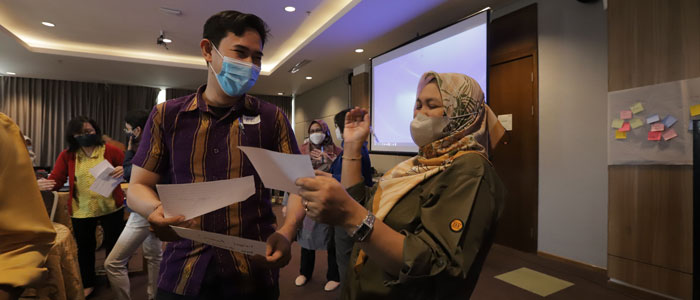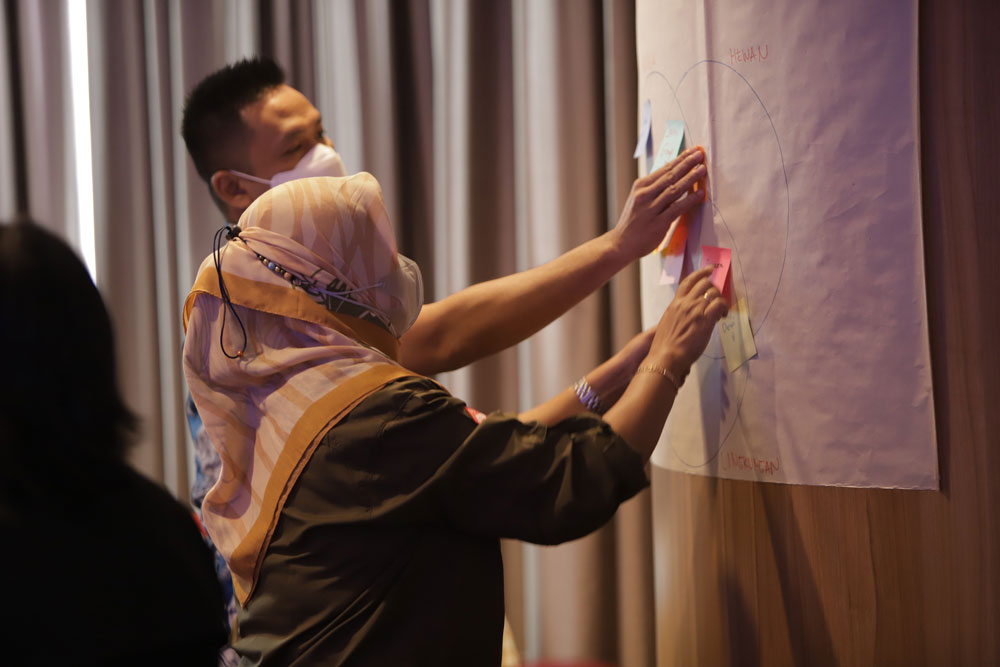Building One Health Capacity in Indonesia
The Intergovernmental Science-Policy Platform on Biodiversity and Ecosystem Services (IPBES) report[1] warns future pandemics will emerge more often, spread more rapidly, do more damage to the world economy and result in greater mortality than COVID-19 unless there is a transformation in the global approach to dealing with infectious diseases, from reaction to prevention.
In November this year, world leaders gathering in Indonesia will be creating a way forward for Global Health Architecture. They will be looking at how we make global health systems more inclusive, collaborative, and resilient to prevent and respond to future pandemics.
The Nossal Institute has been working in this space throughout 2022 in partnership with Australia Indonesia Health Security Partnership (AIHSP). We are co-developing a suite of customised training programs to equip Indonesian government officials with the skills and ways of thinking required to prepare for future infectious disease outbreaks.

The AIHSP Team Leader, John Leigh emphasized, “A One Health approach that views human, animal, and environmental health as interconnected is essential to promoting health security in our region.”
“This training program is a collaboration with the Australia Indonesia Health Security Partnership (AIHSP) with the Nossal Institute for Global Health that applies a One Health approach to building health security,” John added.
The Foundations in Health Security in Indonesia course, the first in a series, was delivered in Bogor in July. Twenty-eight Indonesian government officials representing human, animal, and environmental health sectors, and from regions across the country participated in the 5-day intensive course.
The Foundation course is the first stage in a multi-year training program aiming to position Indonesia as a global leader in holistic and sustainable approaches to pandemic prevention and preparedness.
 The multi-year training program will use a One Health approach and focusing on skills and strategies for supporting the human health, animal health, and environmental sectors to work better together. A cooperative response will maximize the resources available to respond to infectious disease outbreaks quicker, more effectively, and with a long-term focus. The program reflects a shift in the way we think about infectious diseases management - moving away from a purely human health lens towards an approach that considers human health, animal health, and environmental issues such as climate change, deforestation, and urbanization as deeply interconnected.
The multi-year training program will use a One Health approach and focusing on skills and strategies for supporting the human health, animal health, and environmental sectors to work better together. A cooperative response will maximize the resources available to respond to infectious disease outbreaks quicker, more effectively, and with a long-term focus. The program reflects a shift in the way we think about infectious diseases management - moving away from a purely human health lens towards an approach that considers human health, animal health, and environmental issues such as climate change, deforestation, and urbanization as deeply interconnected.
The feedback from the first round of graduates from the Foundation course has been overwhelmingly positive. For many, it was the first time engaging with One Health approaches. Participants valued training with colleagues from across animal, human and environmental health sectors and learning directly through the diversity of their colleagues’ experiences and perspectives.
What impressed me the most about this short course was that it was an opportunity to connect with and learn from experts in various fields. I also learned approaches from other countries which may be applicable to our community. Eleazar Thandi Sallata, from the District Health Office in West Sumba
Everyone felt heard in this course. I was amazed by the quality of learning materials: the presentations by speakers, followed by discussion and sharing of experiences, and the facilitators assisting to broaden our perspectives. Asumta Ene Djone from the Department of Population Control and Family Planning
The next course will run from 21st-25th November 2022.
For more information on the second Foundations in Health Security in Indonesia course contact the Australian Indonesia Health Security Partnership.
For more information on how the Nossal Institute can work with your organisation to create customised courses in Global Health, contact Matt Ralston
1 https://ipbes.net/global-assessment